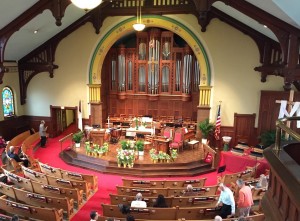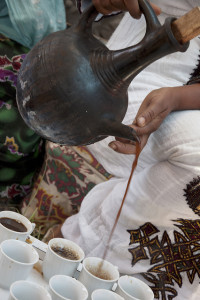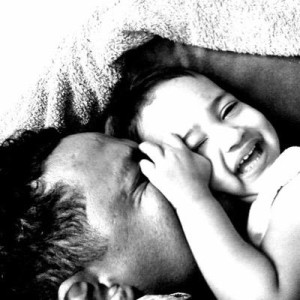Mystery is not the absence of meaning,
but the presence of more meaning than we can comprehend.
~ Eugene Peterson
* * * * *
When I was a girl sitting in church pews—a girl still small enough that my feet swung back and forth because they didn’t reach the floor—I learned that God was holy. Being with God meant spending Sunday mornings in a space like no other in my life, with ceilings reaching three stories high, painted blue like the heavens, and walls of stained glass to my left and right. In that space I learned that mystery and rituals matter in equal portion—that Sunday after Sunday we did the known things we could do in hopes of glimpsing the edges of the unknown things shrouded in mystery.
 I learned very early on that God is loving and accepting of all, but also that my own potential to sadden him had no bounds. Through unison prayers of confession, I became aware of not only of the many things I could do wrong, but also of the “right” things I left undone. Between the sins of action and those of omission, how could I possibly get through a day unscathed?
I learned very early on that God is loving and accepting of all, but also that my own potential to sadden him had no bounds. Through unison prayers of confession, I became aware of not only of the many things I could do wrong, but also of the “right” things I left undone. Between the sins of action and those of omission, how could I possibly get through a day unscathed?
The God of my childhood was not a God of fire and wrath, but a God of head-shaking and disappointment. It seemed he was always looking down on me, wishing I had made a different, better choice.
* * * * *
At high school church camp, I learned the night sky could be the ceiling and the northern Michigan trees the stained glass of a different kind of church. I learned that God could be met anywhere, apart from pastors and acolytes donned in robes, and even apart from my family sitting alongside me in the pew.
I also learned, through the testimonies shared around campfires by leather-jacket-wearing ex-convicts and -addicts, that God’s love is bigger than his disappointment, and that he’s in the business of changing lives, not critiquing them.
* * * * *
During my senior year of college I sang in a gospel choir at a diverse urban church whose style of worship couldn’t have felt more different from Sunday mornings in the stained-glass church of my youth. In addition to learning the importance of clapping the off-beats, I learned my alto part by listening to the choir director sing it—I learned that God could be found outside of music staffs and key signatures, and beyond written confessions inked on pages at the back of hymnals.
In that place people wept their confessions, which were scripted in their hearts. I also learned that God made people raucous and joyful, and that I could get caught up in that joy for a moment or two, but faking it wasn’t the same as making it. My understanding of God had broadened over the years, but now I could see it was still flat, easy to see right through.
* * * * *
At a church in St. Louis, a couple of years into my marriage, I learned how God works in the lives of grieving people. We arrived just months after the sudden death of the church’s beloved pastor, and while that could have easily been a reason to leave the church, it became a reason to stay: In that place I first glimpsed an entire church full of people being raw and real in the presence of God.
I saw a broken community of people trying to make sense of a senseless tragedy, and trying to hold one another up. They worked out their anger with God over months, not hours, and I learned that God accepts our anger, like a father who lets a grieving child beat upon his chest until, finally exhausted, the struggle becomes an embrace.
* * * * *
But when my own life was falling apart, a handful of years later in another city, my new church presented me with a different God—one who wasn’t there to absorb and then transform my pain, but to deflect it back on me, to multiply it with guilt and regret in order to help me learn the hard, unforgettable way.
In that place, I almost unlearned everything important I had learned about God—the loving and holy mystery that can’t be contained by stained glass, the God of transformative power, who meets us in our raw pain and failures. Instead, I was learning why so many people walk away from it all, as I finally did one bright spring Sunday morning.
* * * * *
Until one day a few months later, when I walked into a space that felt nothing like a church, with its coffee stains on the carpet and institutional ceiling tiles above. It was in that place—filled with unpredictable, moving, awkward, painful, and joy-filled people and worship—that God taught me about grace, and about all of the learning I have yet to do.

